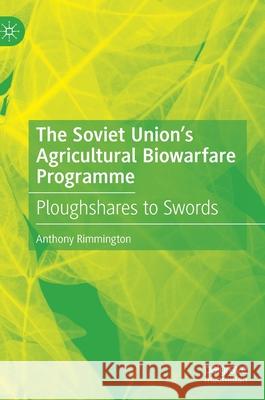The Soviet Union's Agricultural Biowarfare Programme: Ploughshares to Swords » książka
topmenu
The Soviet Union's Agricultural Biowarfare Programme: Ploughshares to Swords
ISBN-13: 9783030738426 / Angielski / Twarda / 2021 / 243 str.
Kategorie BISAC:
Wydawca:
Palgrave MacMillan
Język:
Angielski
ISBN-13:
9783030738426
Rok wydania:
2021
Wydanie:
2021
Ilość stron:
243
Waga:
0.46 kg
Wymiary:
21.01 x 14.81 x 1.6
Oprawa:
Twarda
Wolumenów:
01
Dodatkowe informacje:
Wydanie ilustrowane











